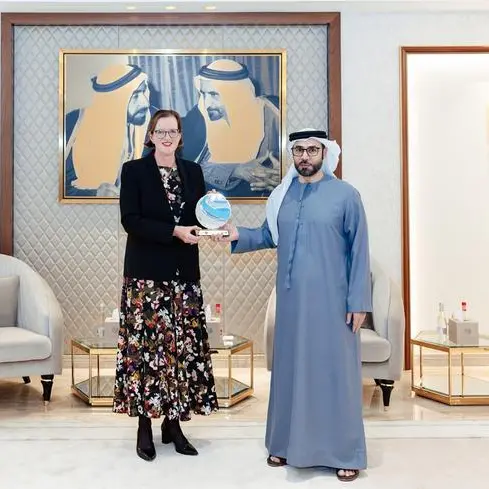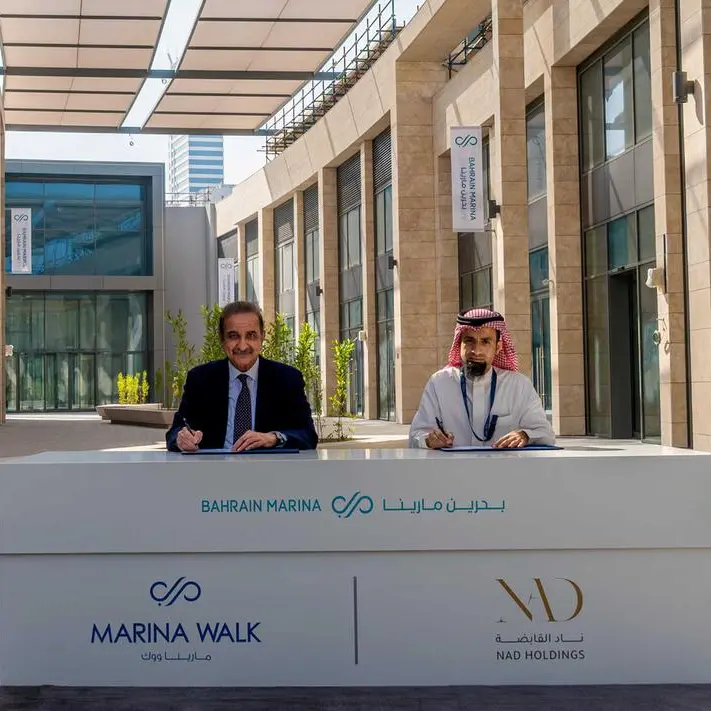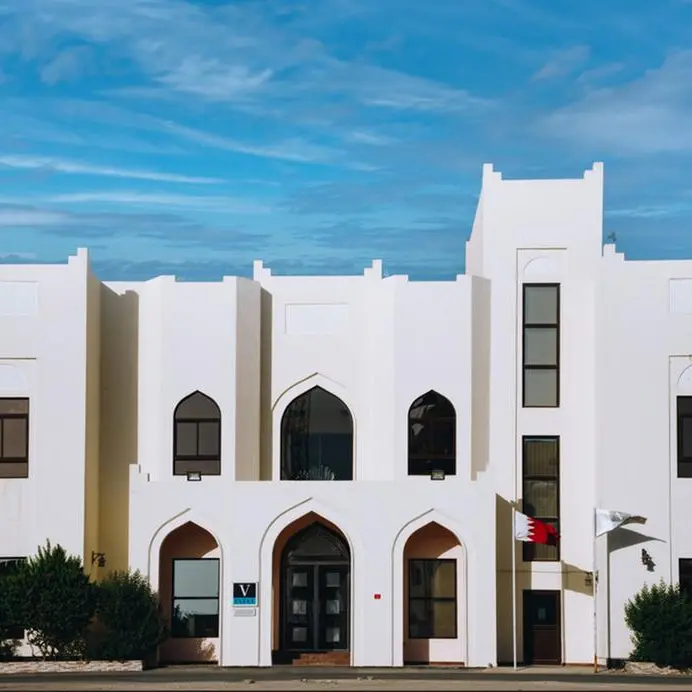PHOTO
According to JLL's Q1-2016 Riyadh Real Estate Outlook
Riyadh - JLL, the world's leading real estate investment and advisory firm, today released its first quarter (Q1 2016) Riyadh Real Estate Market Overview that asses the latest trends in the office, residential, retail and hotel sectors in Saudi Arabia's largest city. In Q1 2016, it was noted that Riyadh witnessed varied performance across its real estate sectors - the residential and hotel market experienced a general slowdown, while the office and retail segments witnessed some marginal growth.
Mr Jamil Ghaznawi, National Director and Country Head of JLL KSA, said: "It is interesting to note that the varied performance across Riyadh's real estate segments over the first quarter of 2016. In the residential market, rental rates witnessed a slowdown, but sales prices have bottomed out as prices stabilise for the first time since the introduction of the mortgage regulations in 2014. On the other hand, the office sector continues to see marginal growth in rental rates due to limited supply and KAFD facing new delays.
Meanwhile, there are some positive signs in the retail market which continues to be fairly stable with marginal growth in rental rates during Q1. But there could be some upcoming downward pressure on retail vacancy rates due to multiple malls expected to open over the course of 2016.
While in the hotel market, we are witnessing a general slowdown in performance which is mainly driven by lower corporate demand triggered by a continued period of low oil prices. This scenario is expected to put further pressure on performance as new supply enters the hotel market. We have already seen decreases in occupancy rates and ADR's, which has negatively impacted RevPar by more than 13% in the YT February figures."
Sector summary highlights - Riyadh:
Office: The first quarter of 2016 saw the completion of only a few office buildings; most notably Al Nakhla Tower, which has brought total office space stock to approximately 2.5 million square meters of Gross Leasable Area (GLA). 2016 is expected to witness the delivery of ITCC main buildings in addition to Hamad Tower on King Fahad Road. On the other hand, the KAFD project has been subject to further delays and is unlikely to deliver any space within 2016. City wide vacancy rates have remained stable at 16% while CBD vacancies have marginally dropped to 6% due to a strong demand and limited new supply. Rental rates have marginally increased across the city to reach SAR 1,263 per square meter while prime commercial rates have remained stable at SAR 1,700 per square meter.
Historically, Riyadh's office market was mainly driven by public sector tenants. However, with a continued period of low oil prices, the Saudi government has become more cautious on new expansions. The private sector, along with autonomous non-government bodies have become the main drivers of office demand and will be responsible to sustain the current rate of take-ups. Grade A office towers located in the CBD continue to benefit from delays of megaprojects by charging a higher rate for the limited amount of stock available.
Residential: Around 6,000 units have entered the market during the first quarter of 2016, bringing the total stock of residential units to 995,000. Data from the Ministry of Justice reveals a decrease of around 6% in residential transactions over the quarter, representing the lowest decrease in transactions since the introduction of the mortgage regulations in November 2014. Sale prices for villas and apartments appear to have bottomed out, remaining relatively stable since the last quarter. However, Y-o-Y sales prices have decreased by 4% and 6% for apartments and villas respectively. Meanwhile, rental rates for villas and apartments have decreased marginally by around 1% across Riyadh.
The Saudi Arabian Monetary Agency (SAMA) has increased the maximum loan-to-value (LTV) ratio for mortgages from 70% to 85% for real estate finance companies. Although these companies represent a small portion in comparison to local banks, this move should make housing more affordable and therefore strengthen demand. This move should help reenergise the market and help reverse the recent slowdown in sales. Also, in an effort to address the shortage of housing in Riyadh, the Ministry of Housing has reached an agreement with a Korean company to build around 100,000 new homes in the North of Riyadh over the coming 10 years.
Retail: The total supply of retail space in Riyadh has remained unchanged at 1.4 million square meters of GLA with no new completions during the first quarter of 2016. Around 212,000 square meters of GLA are expected to be completed over the remainder of the year with the majority of supply coming from the Al Hamra Mall, Khaleej Mall and smaller community centres such as Robeen Plaza and The Boulevard. On a Q-o-Q basis, rental rates remained relatively stable. Rents have increased marginally by 2% when compared to the same period last year. Vacancy rates have decreased marginally over the last quarter to reach 7%. However, these rates are expected to rise as new supply enters the market.
The Saudi Arabian General Investment Authority (SAGIA) is currently finalising regulations regarding full foreign ownership of retail and wholesale businesses. It is expected that the new law will come into effect in the latter part of 2016. The higher vacancy rate within community centres has contributed to the marginal Y-o-Y decrease of 1% in rentals. Given the additional supply of community centres expected to enter the market, we expect rents to continue facing downward pressure in the short term. The recent fall in oil prices and cut in energy subsidies has softened the purchasing power in Saudi. The most recent point of sale transactions from SAMA already show a Y-o-Y reduction of 9% in the value of retail transactions..
Hotel: The hotel market has experienced a decrease in performance levels YT February. Occupancy rates have decreased by around 2% to reach 62% while Average Daily Rate's (ADR) declined by circa 10% Y-o-Y to February to reach USD 226. As a result, Revenue per Available Room (RevPar) for the mentioned months has decreased by over 13% to USD 140 per night. It is worth noting that the decrease in performance over the first two months of 2016 is a continuation of a slowdown that had started in November 2015. The total supply of room keys stand at around 10,700 with the delivery of just one additional project (122 keys from Braira Hotel in Olaya) during the first quarter of the year.
The decrease in performance of hotels in Riyadh is primarily associated with weakening corporate hotel demand, which is a result of the declining oil prices. Furthermore, the deliveries of new hotels during 2016 are expected to add further downward pressure on ADRs and occupancy rates. However, materialisation rates for hotels in Riyadh have historically been low, and it is likely that many of the currently announced hotels will be delayed.
Riyadh prime rental clock
This diagram illustrates where JLL estimates each prime market is within its individual rental cycle as at the end of the relevant quarter.

*Hotel clock reflects the movement of RevPAR.
Source: JLL
-Ends-
Ref: JLL_Q1 Riyadh 2016
About JLL
JLL (NYSE: JLL) is a professional services and investment management firm offering specialized real estate services to clients seeking increased value by owning, occupying and investing in real estate. A Fortune 500 company with annual fee revenue of $4.7 billion and gross revenue of $5.4 billion, JLL has more than 230 corporate offices, operates in 80 countries and has a global workforce of approximately 58,000. On behalf of its clients, the firm provides management and real estate outsourcing services for a property portfolio of 3.4 billion square feet, or 316 million square meters, and completed $118 billion in sales, acquisitions and finance transactions in 2014. Its investment management business, LaSalle Investment Management, has $55.3 billion of real estate assets under management. JLL is the brand name, and a registered trademark, of Jones Lang LaSalle Incorporated. For further information, visit www.jll.com.
About JLL MENA
Across the Middle East, North and Sub-Saharan Africa, JLL is a leading player in the real estate market and hospitality services market. The firm has worked in 35 Middle Eastern and African countries and has advised clients on real estate, hospitality and infrastructure projects worth over US$ 1 trillion in gross development value. JLL MENA employs over 220 internationally qualified professionals embracing 30 different nationalities across its offices in Dubai, Abu Dhabi, Riyadh, Jeddah and Cairo. Combined with the neighbouring offices in Casablanca, Istanbul, Johannesburg, Lagos and Nairobi, the firm employs more than 600 professionals and provides comprehensive services in the wider Middle East and African (MEA) region. For information, please visit our website: www.jll-mena.com
18th Floor, South Tower, Abraj Attawuniya │King Fahd Road, PO Box 13547 Riyadh 11414 │Riyadh, Saudi Arabia
Tel +966 1 2180 303 Fax +966 1 2180 308 www.jll-mena.com
Contact:
Jamil Ghaznawi / Kathryn Athreya
Manash Bhuyan/ Vadia Rai
Phone:+971 4 426 6999
+971 4 437 2102 / +971 4 437 2110
Email:
Jamil.ghaznawi@eu.jll.com
kathryn.athreya@eu.jll.com
Manash.bhuyan@fticonsulting.com /
vadia.rai@fticonsulting.com
© Press Release 2016




















